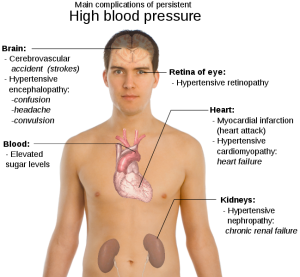Heart disease is still the #1 killer of men and women in the United States. Taking care of your heart should be a lifelong goal, as some heart problems can originate in childhood, and many aspects of heart healthcare involve habits, such as smoking and nutrition, that are easier to shape from youth. While it’s no longer February, the CDC’s Heart Month resources are always worth a look.
EverydayHealth.com has also produced a list of resources for taking care of your heart that is well worth a look. Gathering together the perspectives of 8 different experts in the field of heart health, their article “Expert Advice for a Healthy Heart” addresses a wide variety of factors that influence your cardiovascular system, including smoking, diet, stress, exercise, genetics, and gender differences.
The article takes on the question of risks that ought to be considered. The modifiable ones, according to Dr. Dennis Goodman, are “smoking, hypertension, high LDL cholesterol, low HDL cholesterol, diabetes, metabolic syndrome, obesity, a sedentary lifestyle (lack of exercise), and stress” (our home cholesterol test full lipid panel w/glucose can supply the information you need on high LDL and low LDL cholesterol, along with triglycerides, total cholesterol, and glucose*).
Personally I find stress to be one of the more confusing factors to understand in the context of heart health – what’s the best way to handle stress? Modifying your smoking habit is pretty simple (although difficult) – either stop or do not. But stress is pretty unavoidable. 4 different doctors offer their advice in the article, including exercise, meditation, hobbies, and simply “letting it out” or “powering down.” Any of these sound good when you consider, as Dr. Kirk Laman says, that “something as simple as worrying has been shown to double your chances of having a heart attack.”
The doctors interview also cover the types of foods you can eat to keep your heart happy. To figure out how to combine some of those foods into meals for the whole family, I personally recommend the NYTimes’ Recipes for Health Section, where Martha Rose Shulman somehow manages to create tons of delicious looking recipes, many containing comprehensive nutritional value information.
Take a look at the EverydayHealth article for some useful, expert tips on keeping your heart healthy.
* Although we at Home Health Testing stand by our product, I just wanted to add that this should not be construed as endorsement by EverydayHealth.com.







